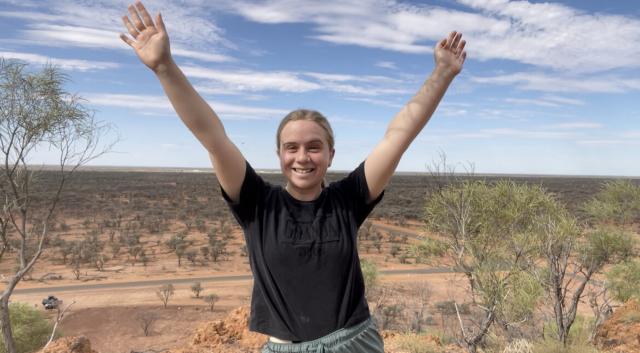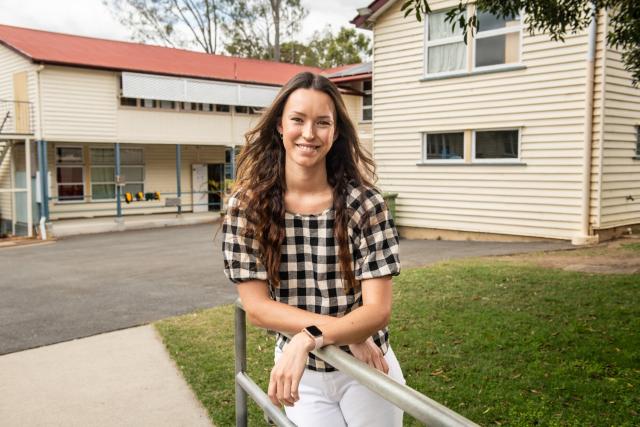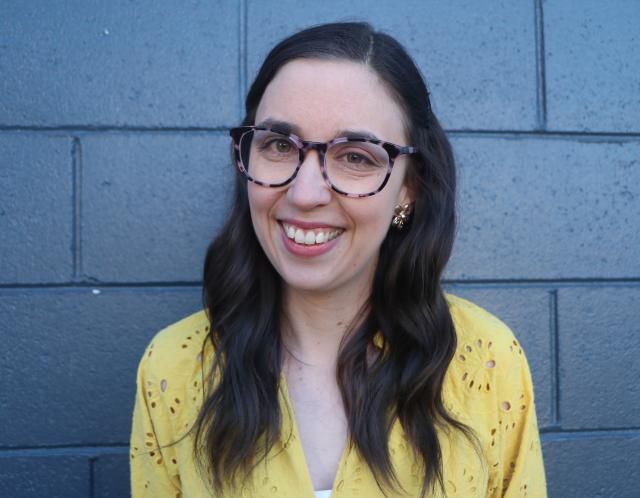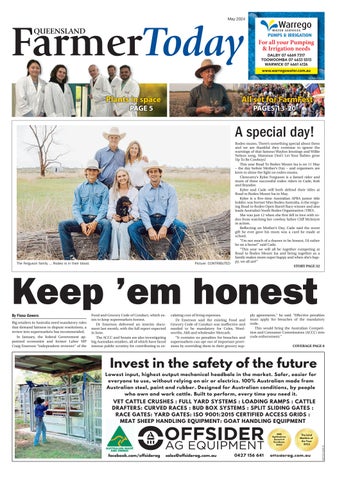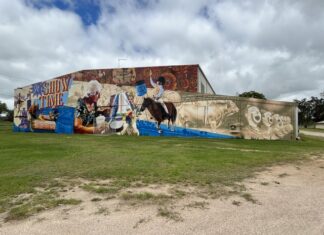Rural and remote classrooms was where 92 per cent of University of Southern Queensland (UniSQ) graduates in the School of Education Alternative Context project chose to start their careers last year.
The project offered pre-service teachers contextualised support to engage in placements outside metropolitan areas.
USQ School of Education associate head Dr Tania Leach said the project emerged from the 2019 to 2020 UniSQ Rural and Remote summits, where community members, industry partners and researchers collaborated to create practical solutions to nurture a knowledgeable and skilled teaching workforce for rural and remote contexts.
It is one of many ways the UniSQ prepares its graduates for rural classrooms.
“The Bachelor of Education (primary) program has embedded course work, which specifically focuses on preparing pre-service teachers for rural and remote communities,“ Dr Leach said.
“This includes multi-year level planning, pedagogical approaches and how to build sensitive and confidential relationships with community members.
“This rural context provides opportunities for graduate teachers to expand their employment prospects and career growth, while also addressing the needs of students and their families.”
In 2021, 531 UniSQ students completed professional experience in rural or remote schools, travelling as far north as Nanum.
A further 1249 students completed professional experience in regional schools.
Bachelor of Education (secondary) student Taylah Hoffman chose to study education because of the positive leadership of her high school teachers.
“I was always happy and excited to come to school each day, so I chose to become a teacher in the hope that I could help make school a happy place for my future students and be a positive role model,” Miss Hoffman said.
In 2021, she travelled to Quilpie for one of several placements during her studying journey, where she was able to learn in a school with just 60 students from prep to year 10.
“On my placement, I had 11 students in the high school and was under the guidance of two amazing mentor teachers who really took me under their wing and taught me lots about the profession,” Miss Hoffman said.
“This placement was hands down one of the best experiences of my university studies to date.
“I’m excited to see where my teaching degree will take me in the future and look forward to having students of my own in the future.”
Former UniSQ students who have gone on to start their careers in regional areas are leading innovation and connection in their classrooms.
Jasmine Hunt is in her fourth year teaching in rural and regional Queensland after graduating in 2018.
She said experience in a rural classroom was the best way to set yourself up for a rewarding career in education.
“In small schools, you have the opportunity to take on roles that may not be what you intended, but these experiences push you outside your comfort zone and help you to grow and develop as a professional,” she said.
“You have opportunities to step up and lead projects and events early in your career.”
After three years in Surat Basin, Jasmine is now teaching in Toogoolawah.
She said the small and supportive communities she had worked in gave her an amazing place to launch her career.
“In my experience, parents in rural communities are committed to working with you to help their child to be successful,” she said.
“They really value good teachers who go the extra mile to give their children a quality education.”
Fellow alumni and regional teacher Danielle Chapman vied for the Queensland College of Teachers TeachX awards.
The 2015 UniSQ graduate was nominated for the Merline Muldoon Memorial award for Innovation in Teaching in celebration of her use of technology to create an inclusive classroom at her school in Toowoomba.
One of her current students uses body language, facial expressions and gestures to communicate, as well as has technology-based display systems such as an eye-gaze device to choose symbols for communication.
To fully support his learning, Ms Chapman teaches all students to become communication partners, and she uses a device to aid communication.
“Augmenting my natural speech with the use of symbols and a speech-generating device has many benefits for all students,” she said.
“Involving all students on this journey also enables them to become citizens who celebrate and respond creatively and naturally to difference or disability and to advocate for inclusion and accessibility.”
Dr Leach said the success of students and alumni demonstrated the university’s capacity to guide and promote excellence in rural and regional teaching.

